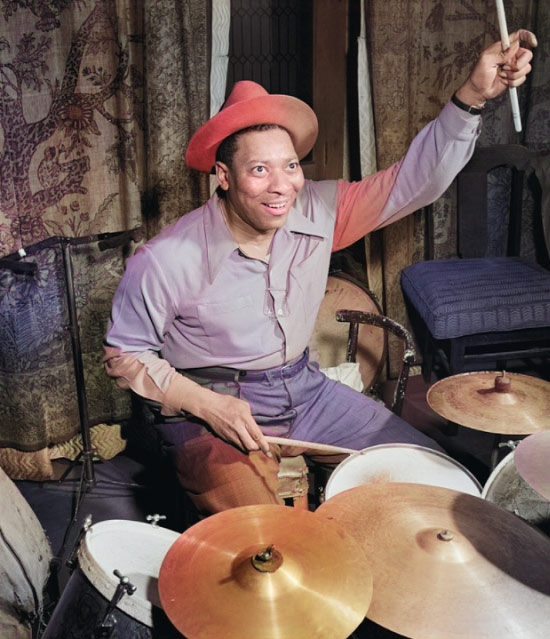
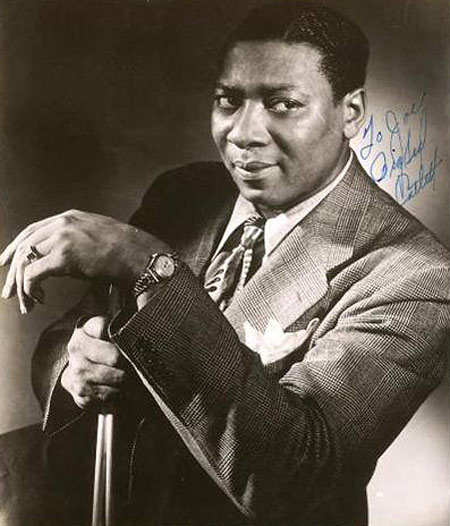
| Big Sid Catlett |
|
After briefly trying piano, Catlett switched to drums and received
formal tuition when his family settled in Chicago. After working with Darnell Howard,
Catlett moved to New York where he played with Elmer Snowden and Benny Carter, following
these sessions by drumming with McKinney's Cotton Pickers, Fletcher Henderson and Don
Redman.
Catlett happily switched from big bands to small groups, such as those led by Eddie Condon and Lionel Hampton, without any discernible difficulty. In 1941 he joined Benny Goodman, giving that band an overwhelming plangency it never received from any other drummer. In the late '30s and early '40s Catlett worked and played endlessly, appearing on countless recording sessions with a staggeringly wide variety of musicians. The advent of bebop appeared not to trouble him and if he never fully adapted his style he certainly gave his front-line colleagues few problems. In the early '40s Catlett was a member of the superb Teddy Wilson Sextet; when this engagement ended he led his own bands until he joined Louis Armstrong's All Stars in 1947. He remained with Armstrong until 1949 when the years of all-night jam sessions began to catch up with him. Ill or not, Catlett continued to work, but on 25 March 1951 he collapsed and died while visiting friends backstage at a Oran ‘Hot Lips’ Page benefit concert at the Chicago Opera House. Although a brilliant technician, Catlett chose to play in a deceptively simple style. With the fleet, smoothly-swinging Wilson sextet he was discreet and self-effacing; with Goodman he rolled the band remorselessly onward, with Armstrong he gave each of his fellow musicians an individualized accompaniment that defied them not to swing. Instantly identifiable, especially through his thundercrack rimshots, Catlett always swung mightily. On stage, he was a spectacular showman, clothing his massive frame in green plaid suits, tossing his sticks high in the air during solos and generally enjoying himself. |
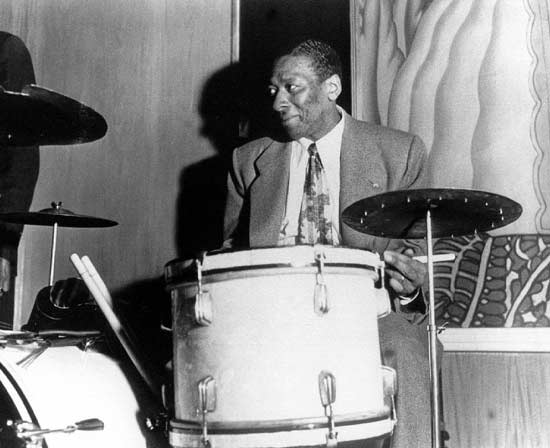
|
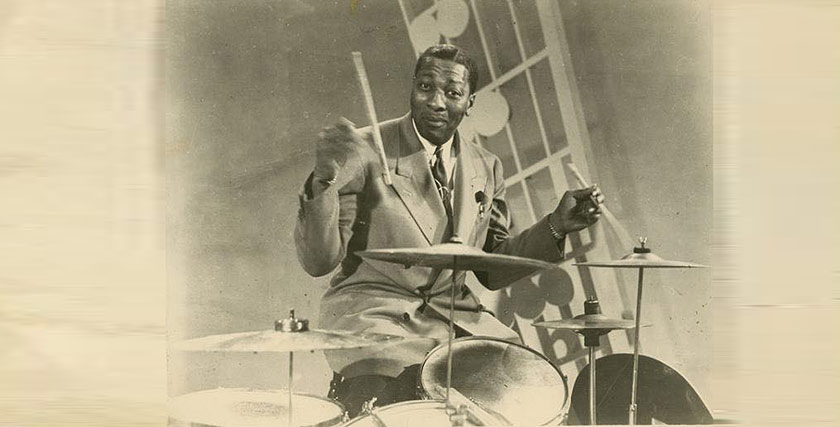
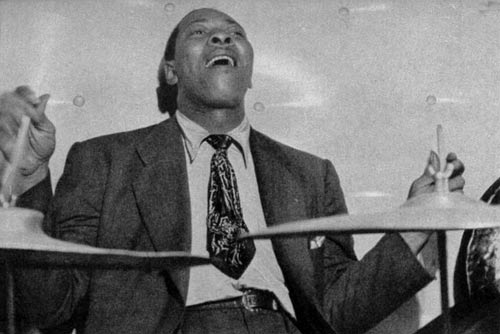
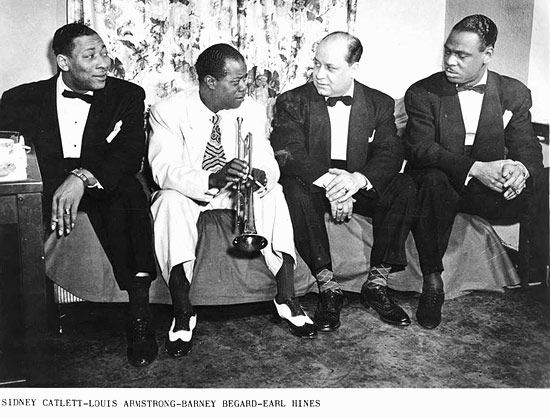
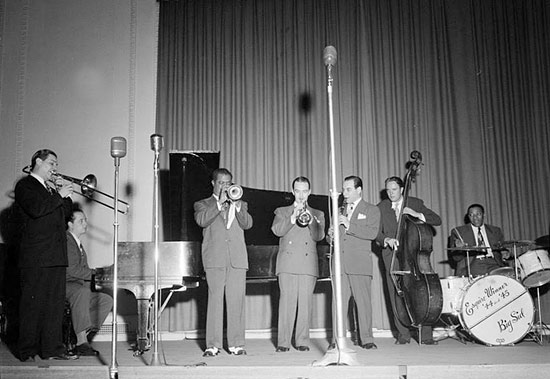
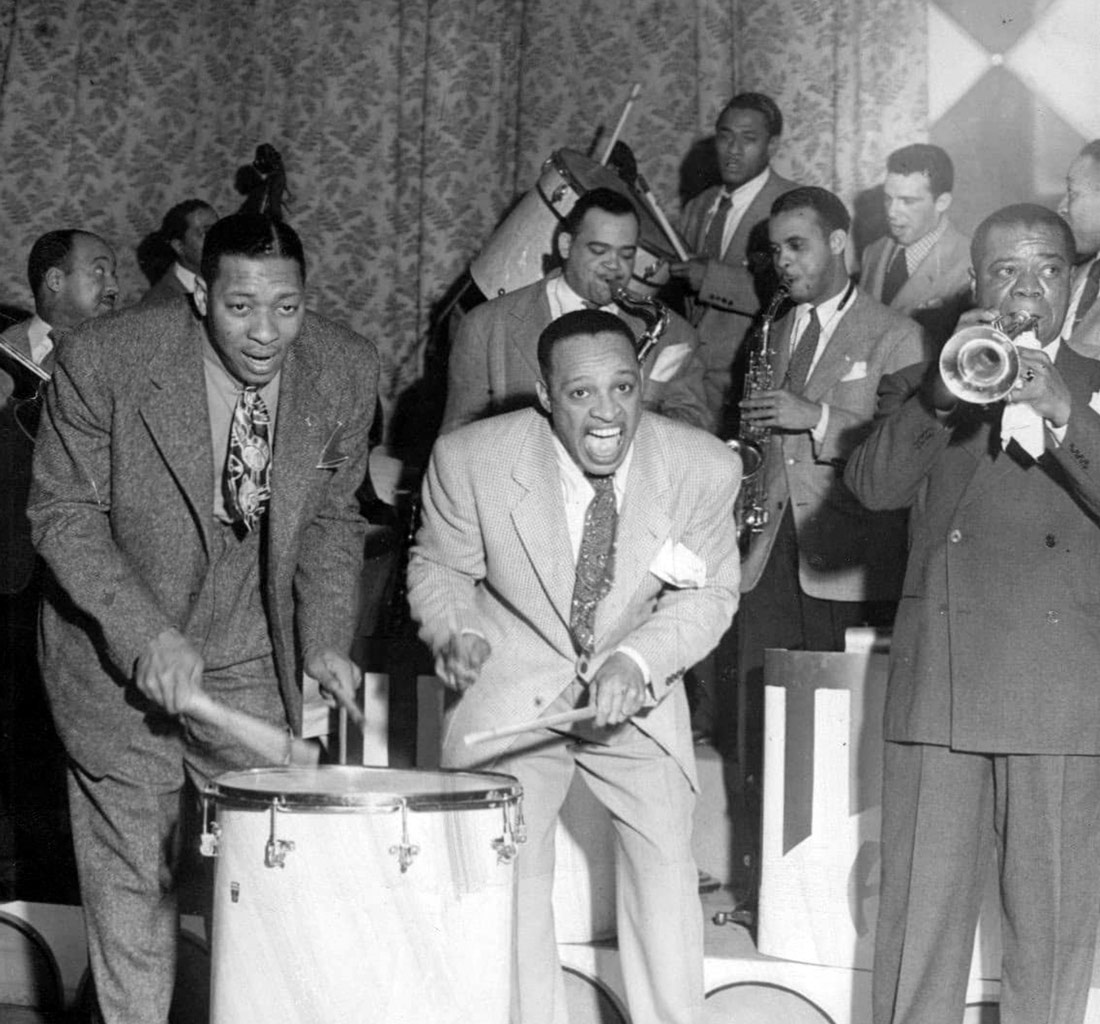 "Big" Sid Catlett - Lionel Hampton - Louis Armstrong
"Big" Sid Catlett - Lionel Hampton - Louis Armstrong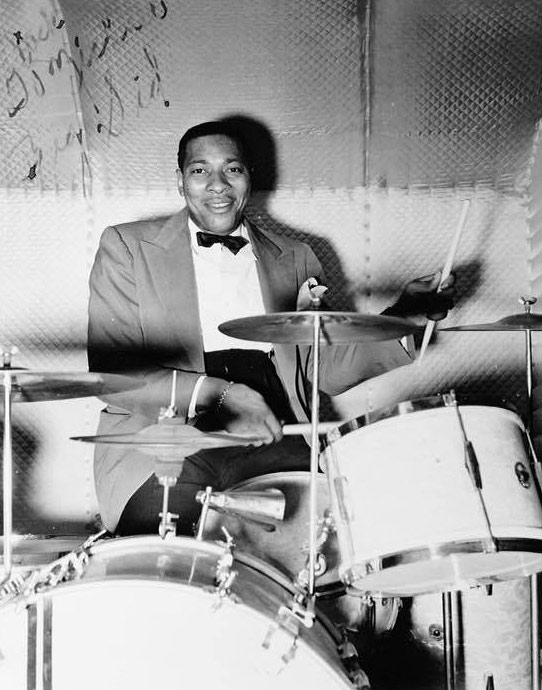
|
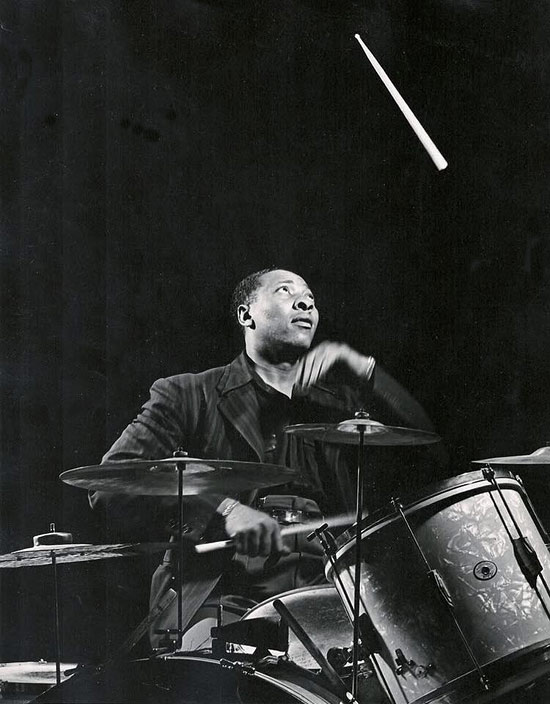
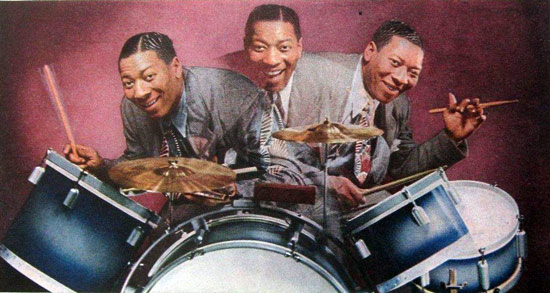
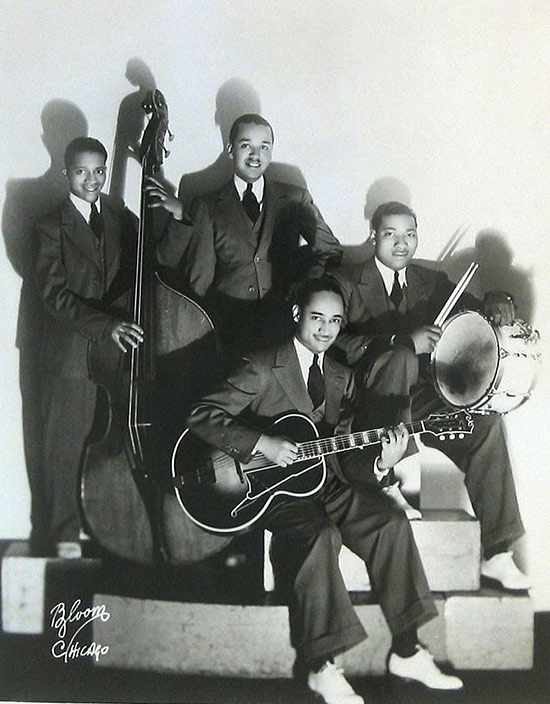
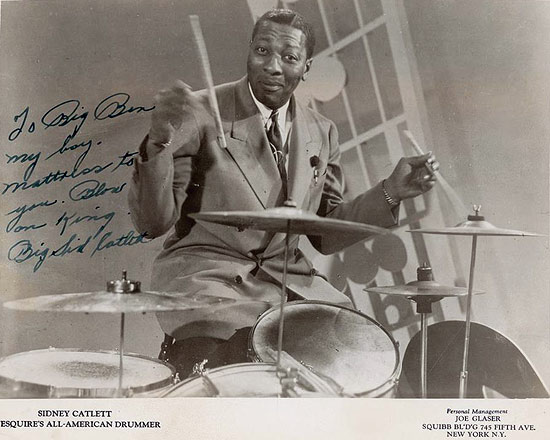
|
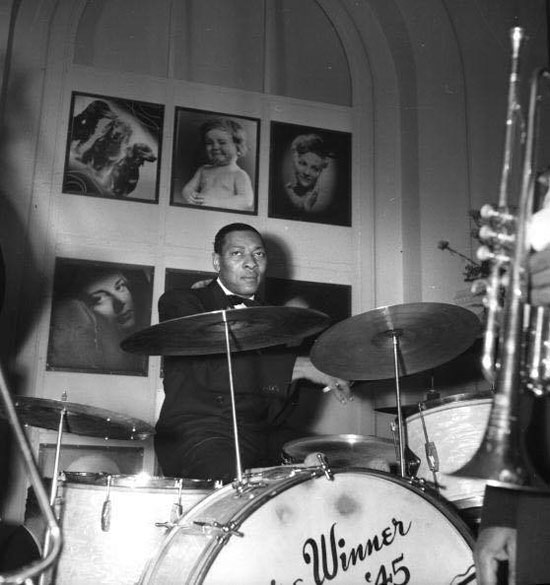
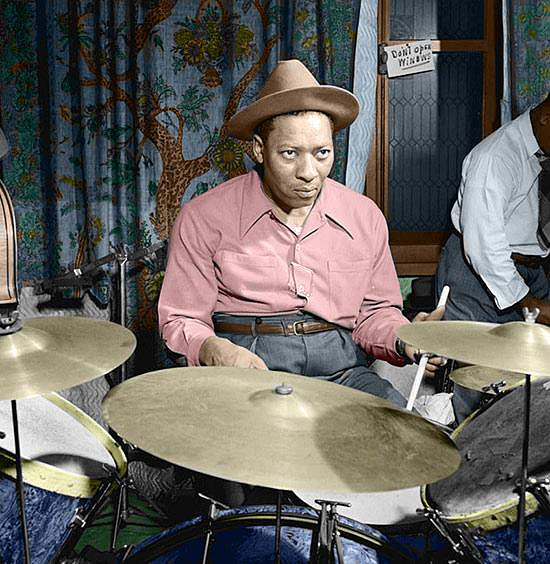
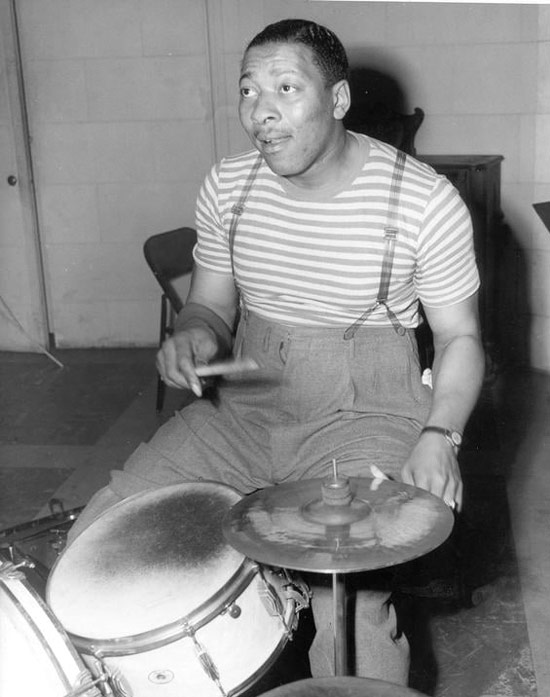
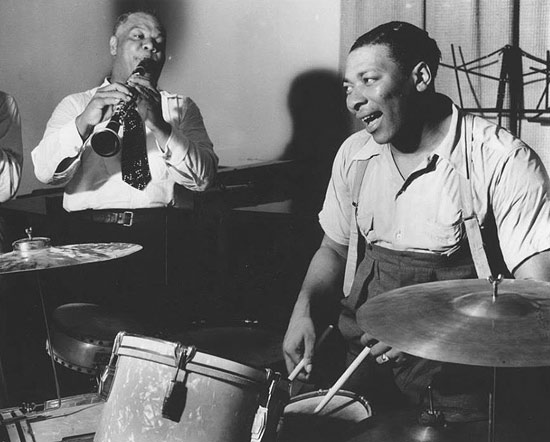
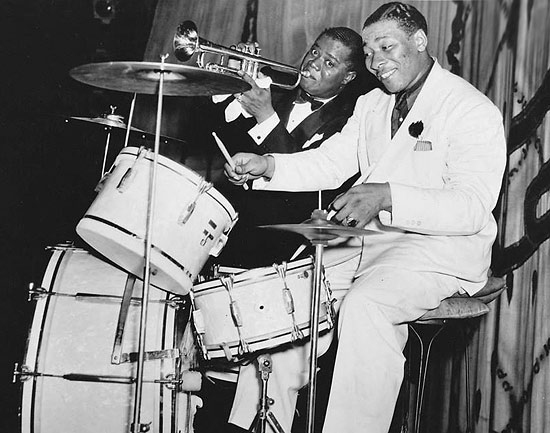
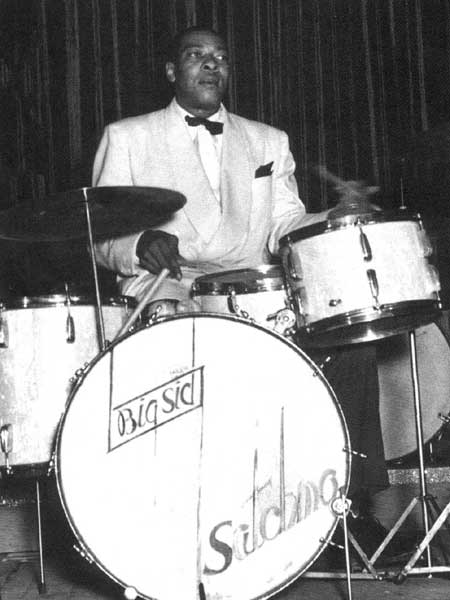
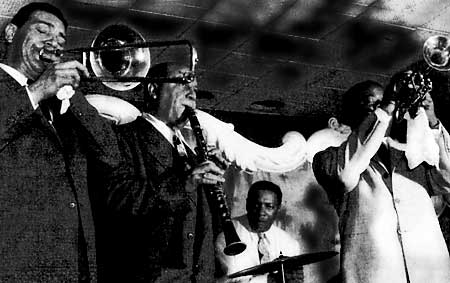 Jack Teagarden,
Barney Bigard, Big Sid Catlett, Louis Armstrong
Jack Teagarden,
Barney Bigard, Big Sid Catlett, Louis Armstrong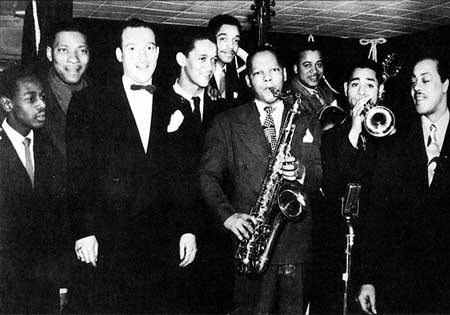 Freddy Webster,
Sidney Catlett,
Freddy Webster,
Sidney Catlett, Scoops Carry, Trummy Young, Leonard Gaskin,
Budd Johnson, Snags Allen, Dizzy Gillespie, Doc West
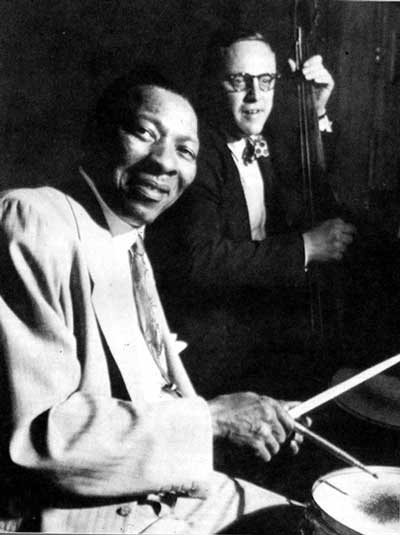
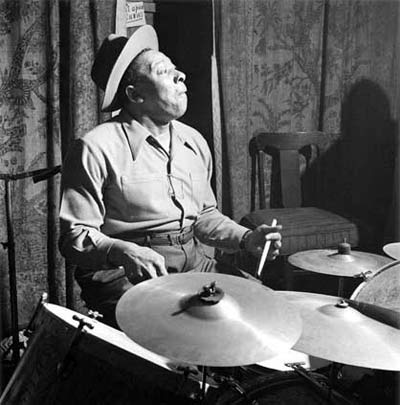
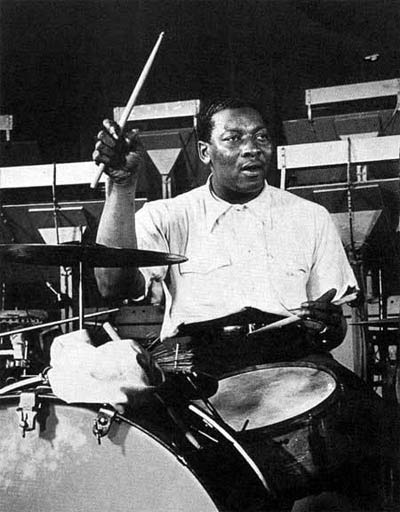
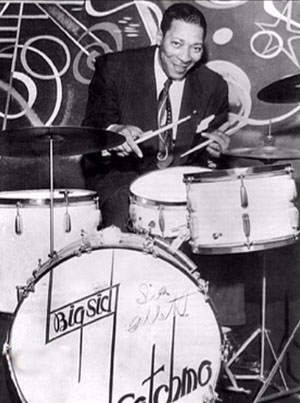 thanks for your visit!
thanks for your visit!
CLICK:
the 500 Top Drummers:
the 500 Top Drummers:







